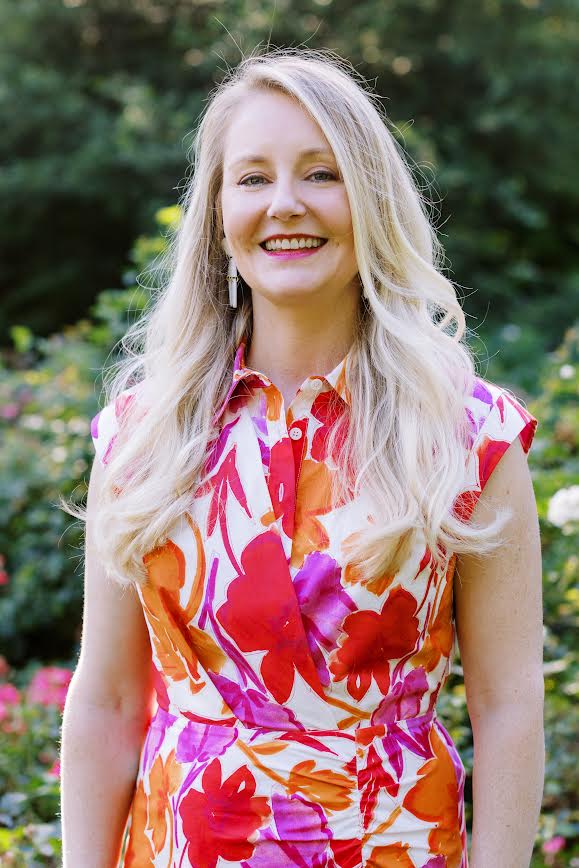7 Biblical Characteristics of Risks Worth Taking

On a trust walk, you’re asked to follow the directions of your guide while blindfolded. The guide’s job is to lead you on a journey that successfully navigates obstacles. Your job is to carefully listen to your guide’s instructions and rely upon his or her advice. It’s scary but thrilling, and you learn something about yourself in the process. For instance, is it easy or hard for you to trust?
Imagine how a faith walk is similar. A thrill often awaits, and self-learning too.
The difference is that the terrain is trickier and the stakes are higher than a simple outdoor exercise. Lucky for us, we have the best Guide. He asks us to obey his voice and respond—to take that leap and initiate adventure. Whether it concerns a job, move, relationship, or a new course of study or opportunity, perhaps you’re considering stepping out of your comfort zone.
Here are seven characteristics of godly risk to help you discern and follow the voice of your Guide, based upon my new book on life purpose:
Photo Credit: ©Unsplash/Sammie Vasquez

1. Godly Risk Is Rooted in Identity
Abram risks in the Old Testament and becomes Abraham. Saul becomes Paul in the New Testament and risks for the kingdom. Biblical characters are often renamed in conjunction with their purpose.
Theological risk should be rooted in whom God created you to be and his intention for your life. Ask yourself if what you are considering falls in line with what you know about yourself—and how you sense God wants to advance his purpose through you.
2. Godly Risk Is Calculated
God calls believers to risk, but only at the sound of his voice. The story of Peter walking upon the stormy waters powerfully illustrates this lesson (Matthew 14:22–33). First, notice that Jesus commands Peter to climb out of the boat. In other words, Jesus calls Peter to risk, to move out of his comfort zone at the sound of his voice. Peter must depend upon the firm foundation that Jesus offers by faith to stand upon the stormy waters.
Second, Peter does not risk until Jesus commands him to do so. Peter doesn’t jump out of the boat and into tumultuous waters for his own name’s sake; instead, he follows the specific call of Jesus. Once he hears it, Peter knows it is safe to counter his fear by faith and act courageously. Tune your ears to how God might be calling you through scripture, quiet time, and conversation with other believers.
Photo Credit: ©GettyImages

3. Godly Risk Is Rooted in Faith, Not Fear
When Peter obeys Jesus’ voice, he’s able to do something spectacular that gives glory to the power of God. It’s only when Peter doubts in fear that he starts to sink, and this feat isn’t possible. It’s no mistake that Jesus says, “Do not fear,” more than any other statement in the Bible. Fear may be present, but you can rely upon faith instead.
Reflecting upon Jesus’ command to not be afraid, Parker Palmer writes in Let Your Life Speak: Listening to the Voice of Vocation: "'Be not afraid’ does not mean we cannot have fear. Everyone has fear…Instead, the words say we do not need to be the fear we have…” Your fear doesn’t have to be an endpoint.
Mark Twain agrees, “Courage is resistance to fear, mastery of fear, not absence of fear.” Faith is fear’s antidote—use it liberally.
4. Godly Risk Invites Uncertainty
When the Israelite people flee slavery, they travel in the wilderness for 40 years toward the promised land. For them, the wilderness is an in-between place that’s fraught with risk.
The season of Advent remembers the story of Mary’s pregnancy, which culminates in the promise of the birth of the Christ child at Christmas. For her, the wilderness is an in-between time—her pregnancy—that’s fraught with risk.
Today, we can experience a wilderness of time or place when we encounter uncertainty and stretch toward the hope of a promise fulfilled ourselves. The wilderness’ limbo is often trying and frustrating, but Scripture reminds us that it’s holy and full of possibility too. Consider its value.
Photo Credit: ©Unsplash/Benjamin Davies

5. Godly Risk Requires Persistence
Being willing to undergo uncertainty is hard enough, but godly risk will often require believers to persist in it, too. It’s a discipline to continue risking, stretching, and believing, especially when nothing appears to be changing.
Galatians 6:9 encourages, “Let us not grow weary in doing good, for at the proper time we will reap a harvest if we do not give up.”
It’s like the small drip of water that over time breaks the mighty rock. Every act of faithfulness in the wilderness, every measure of persistence in uncertainty, will not be wasted. Remember that it is Joshua who eventually leads the Israelites into the Promised Land after all those years because he confidently believes no matter what. Your belief is powerful, too.
6. Godly Risk Ensures Growth
Godly risk is different than the risk tied to immediate gratification, which is plentiful in culture. Immediate gratification is often self-serving and short-sighted; godly risk is God-driven with long-range benefits. The latter can take you someplace different, someplace better.
Because it requires discipline and tempering uncertainty, however, godly risk is less common. Let the promises of God spur you on. The practice will allow your faith to maintain a powerful growth trajectory.
Photo Credit: ©GettyImages/greenaperture

7. Godly Risk Benefits Outweigh the Cost
While godly risk is a vital element of a well-lived Christian life, that doesn’t mean what believers risk or stretch for will always turn out as planned. Disappointments and road bumps are a part of the process. That’s when we claim Romans 8:28, “And we know that in all things God works for the good of those who love him, who are called according to his purpose.”
God’s voice will never call you to a place outside of his masterful plan for your life. While his good purpose is often most apparent in hindsight, trusting God will free you up to enjoy the blessings of the present moment, too. His hand is assuredly upon you—always.
Use these seven characteristics to help you discern healthy risk—and take it. You’ll begin a spectacular dance of God’s call and your response that will increase your intimacy.
As you stretch for his hand of support in obedience, you’ll learn more about God’s trustworthiness and character. You’ll experience the thrill of challenge side by side, together.
Are you ready for the trust walk of your life? To read more, check out my new book, How to Live Your Life Purpose: The Six-Step Journey to God’s Best—this article contains excerpts from it and is reprinted here with permission.
Recommended for You:
How to Know If Your Leap of Faith Is in God's Will
6 Reasons Women Over 50 Can Do Brave Things
10 Courageous Ideas for Seniors
8 Tips for Taking Courage, Not Waiting for it to Be Given
5 Courageous Women from the Bible You May Have Forgotten
Photo Credit: ©Pexels/Andrea PiacquadioSparrow
Originally published September 01, 2020.









